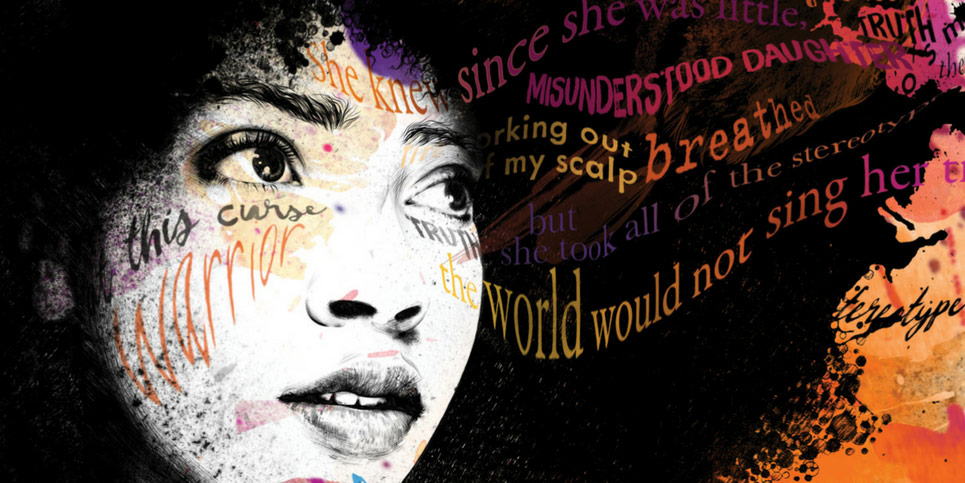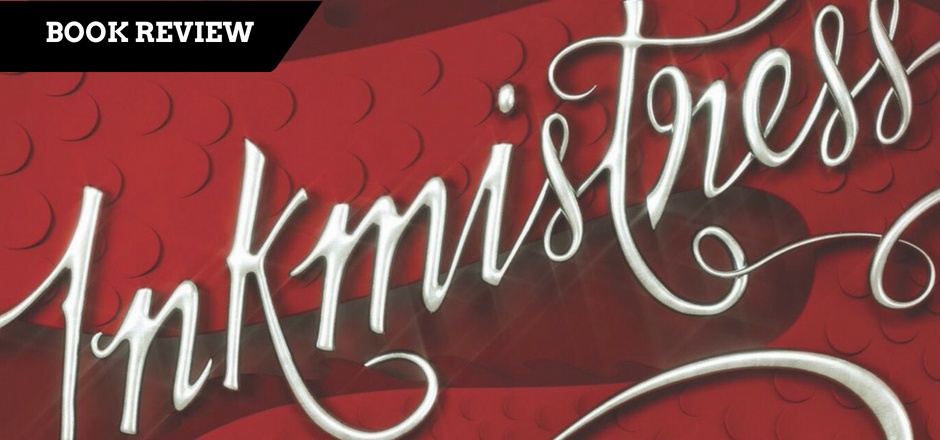Elizabeth Acevedo The Poet X details (in three parts) growing up in Harlem, learning to be self-reliant and confident, living in a strict household, and trying to connect through the eyes of Xiomara Batista.
 Ever felt like the good parts of life happen around you rather than to you?
Ever felt like the good parts of life happen around you rather than to you?
Try being a young Dominican-American girl with a deeply religious mother, a semi-inattentive father, and a seemingly perfect twin brother.
Imagine navigating school, and your Harlem neighborhood, in a body with the kind of curves that draw unwanted attention and unfair character assassination.
Try working to uncover who you are in an environment where no one’s interested in hearing about you from you.
How you would find your voice? What would your struggle to be heard look like?
Acevedo Verse Demands A Voice
Xiomara fills her journals with her frustrations, fears, discoveries, doubts, and pain. She feels disconnected from her family. She’s wrestling with how to not permit others to define her. She can’t break through the narrow tenets of her mother’s religion to form a real bond. The contradictions between that faith and her mother’s abusive actions push Xiomara away from religion.
“When I’m told to have faith in the father, the son, in men – and men are the first ones to make me feel so small.”
I found myself flinching as more than a few epiphanies hit home. It’s never easy when difficult things mirror your own life. Coming from a devotedly Catholic upbringing, her mother’s harsh words often resonated like poorly exorcised ghosts from my past.
Xiomara chooses to defend her developing body and space with her fists. She leads with a fierce swagger intended to protect her from the barbs and bitchiness in school hallways.
“When your body takes up more room than your voice you are always the target of well-aimed rumors, which is why I let my knuckles talk for me. I’ve forced my skin just as thick as I am.”
Xiomara finds her footing with slam poetry
When a teacher encourages her to join the slam poetry club, Xiomara discovers a place her words are truly felt. Her broken thoughts become verses; those verses turn into stanzas; those stanzas change the daily grind of her life into art. The effect is almost tangible — her words a whisper in the reader’s mental ear.
Spoken-word becomes Xiomara faithful companion as she discovers her body and explores her feelings. It’s her touchstone while suffering under the oppressive shroud of her mother’s brutal religious fervor.
When the story turns to her relationship with her closeted brother, a whole other level of this toxic family dynamic unfolds. This part of the story, more than any other, deftly works through themes of dealing with familial expectations and the pain of wishing to live freely and openly as oneself. It’s eye-opening, heart-wrenching, and raw.
Brevity is no barrier to connecting with Xiomara
The Poet X highlights the pitfalls of puberty and young adulthood and presents unique aspects of the Latino (and Black) experience as central rather than a reductive trope. You’ll relate to more than a few of her insecurities as she grapples with first love, self-love, and verbal abuse in isolation.
Xiomara’s life is fully on display rough edges and all. It’s one of growth, loss, acceptance, and resolution. Acevedo never shies away from speaking her truth or expressing emotions. This story turns on the lights and explores how deeply entrenched prejudice impacts family problems (not atypical in minority households). She uses poetry to illustrate how these biases and blithely espoused bigotry can shape and misshape one’s psyche.
Acevedo’s talent (and performative expertise) pours words onto the page steeped in passion, pain, discomfort, joy, despair, confusion, pride, and relief. Her work speaks in plain terms about how a parent’s past can suffocate their children; how religion can be turned into a whip to abuse; how a child’s sense of hope and faith is damaged as they come to understand that their sexuality will be treated as sinful and shameful by their parents.
The Poet X is a stunning coming-of-age journey
Xiomara Batista’s tangled emotions and shifting world unravel one beautifully crafted stanza at a time. Blending the earnestness of spoken word with a real world, soul-baring, emotional honesty of a young brown woman’s desperate desire to empower herself is exactly what’s been missing from the YA genre.
Elizabeth Acevedo has a voice that provokes even as it invites readers to look further into the depths of the culture iceberg by amplifying many of the deeper aspects of the Afro-Latina experience. The Poet X is a story that will teach you a new lesson with each re-read because unpacking all the angst and introspection only scratches the surface of Acevedo’s evocative debut novel.
The Poet X released March 6, 2018, and is a must-read.Rating: 5 out of 5
Goodreads | Indiebound | Kobo
This review contains affiliate links. Girls in Capes receives revenue from purchases made at affiliate links, but reviews are not paid, and all reviews contain the staff writers’ honest opinions of the work.






